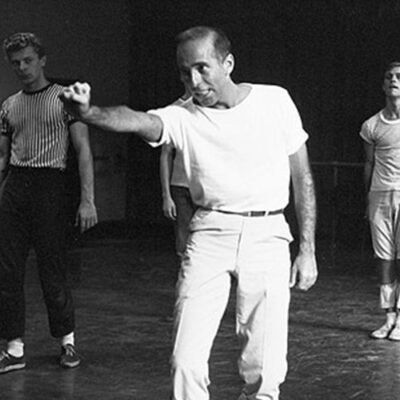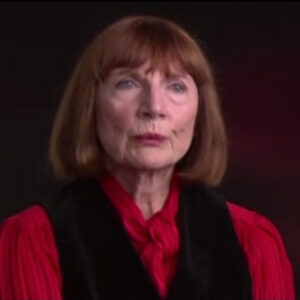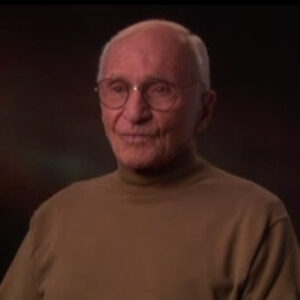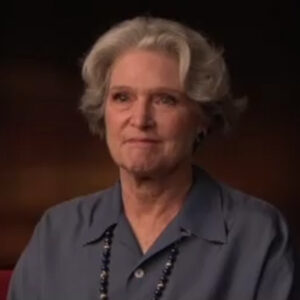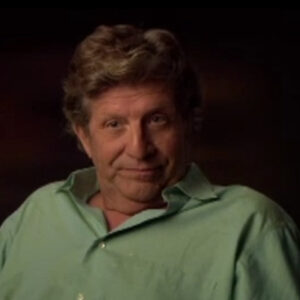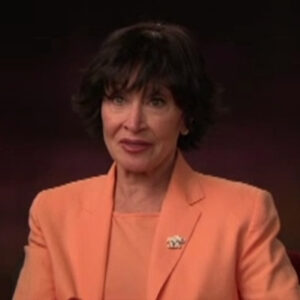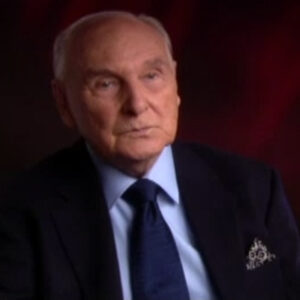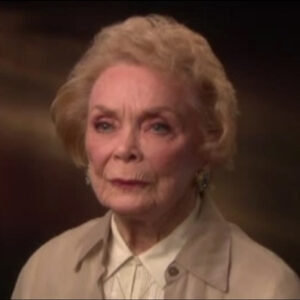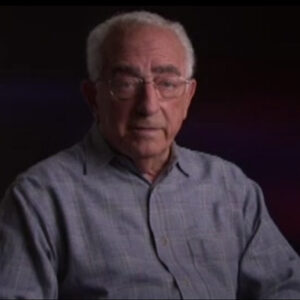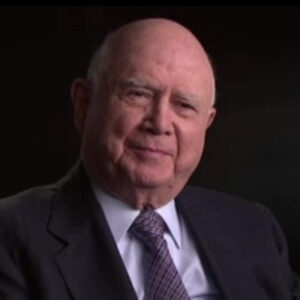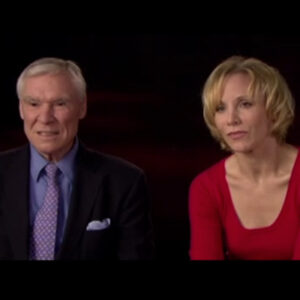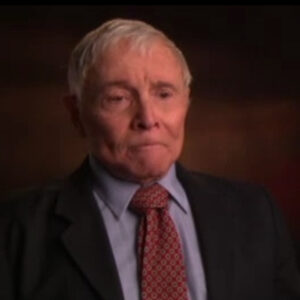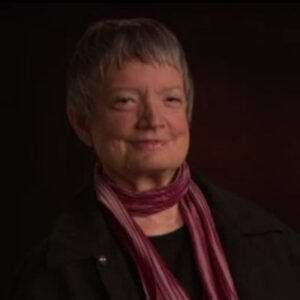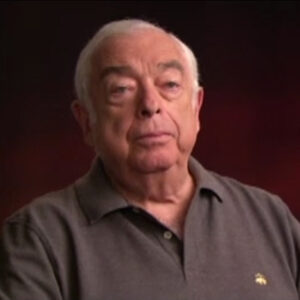Speaker Tell me about your audition for Gypsy. What was that like? Was Jerry there, Jerry?
Speaker Jerry was there. I when I auditioned, I used a song from Cancan Maidens were typical of France, and I just sang it. And, you know, the way I just love to sing. And I didn’t actually I did not get the part.
Speaker They gave the part to Carol Diondre, who I think he had worked with in West Side Story, and evidently she heard her voice and this is what I understand, her voice didn’t kind of match with Ethel Merman, big, brassy voice. And and I did have that kind of brassy singing. So I got a call before they left town. They were having a run through. And my agent called me and said, I want you to go to the run-Through because they’re thinking about replacing dainty June. And so I did. And I remember being very upset because somebody was going to be losing their job. She, you know, was watching her and knowing that, you know, I might be taking her place. And that was very upsetting.
Speaker And also, it it I couldn’t I couldn’t at that point get a sense of the little girl, Jacqueline Métro, the baby June was so incredible and so fiery. And I thought, you know, she really I did I couldn’t tell if it was Carol or if it was. I think that it just once you get older, you lose you lose your it seemed to me anyway, lost its its power. So it was kind of just disturbing all around. And then I got a call later that they actually did want to replace Carol with me. And so I, I worked with Bobbie Tucker, who was one of Jerry’s assistants for three days in New York. I learned the three songs. I learned that the dialogue, I learned how to twirl batons. And I think a couple of sets of batons went out the studio windows because it was so I mean, I knew I had to do this and that. I’ve never done that. And it’s just it was hard just to learn how to do one, much less two and do a split, you know, do a nation a cartwheel into a split with just and twirling twirling those batons.
Speaker But I did do it. So. So you got the job? I got the job. And after after three days they I took the train to Philadelphia and they just threw me on stage. I mean, you know, I had I knew the lines, I knew the songs.
Speaker And it was like total improv for me in the cast. I mean, they would drop me off stage, throw the throw the remember the the white coat and the hat, you know, put my arms and put me back on on stage and it was go.
Speaker So it was trial by fire that but that was just a whirlwind you know.
Speaker And what do you remember about Jerry and all of this.
Speaker The first thing that you my first first of all, just Jerry Robbins, the icon, was, you know, for a little ballerina from Georgia. I mean, he’s an he was an icon. And then he’s got this beautiful, warm smile that just opens you up.
Speaker And then, honey, he sticks that knife in so hard and twisted that it you just don’t know what’s happened to you. It’s it’s he’s he’s two different people.
Speaker Well, tell me about that. How did this present itself to you?
Speaker Well, at first it was everything was OK. And then I had so much to remember. And there was a place where I had a scene with Ethel Merman and Sandra. We were having coffee and it and I needed to move a teapot.
Speaker So that just get it out of the way so that she could sweet some silver into her bag. And it was a joke. Well, I forgot to move the teapot and I got reprimanded. So then I guess I, I can’t remember all the times, but I forgot it again and I got really reprimanded and then I had to go in and apologize to Ethel Merman and I really was sorry. So I had just become a member of the Actor’s Studio. And so I. OK, now how do you how do you tackle this as an actress, you know, and said, OK, I will do a sense memory on really needing T so that I’ll pick up the pot and I’ll pour myself some time. So I’m working on doing this sense memory. And of course I forgot the teapot.
Speaker So Jerry comes I go back to my dressing room and he storms in and he takes a red lipstick from somebody and wrote, remember to remove the F teapot. OK, so then my preparation was, remember to remove the teapot, remember to remove the teapot, remember to remove the teapot till I forgot to remove the teapot. I mean, I was paralyzed at this point and then things were happening where he would in rehearsal. I would get so nervous that, I mean, I literally couldn’t I was paralyzed, couldn’t move. And the we came back to New York and we had two performances before we opened up. I get so nervous just thinking about this. And the night before we opened, I came offstage and I was getting ready to run up to change clothes. And Gerry standing at the top of the stairs and he looks down and he says, You bitch. I knew what I’d done. No, that was the first night in New York, the second night in New York, I went back to get I remember to remove the first I forgot the second night I remembered the teapot and I went back to get my batons. So at the end, where you were them and you go into the split and they were gone, they weren’t there. So, I mean, the joke was just gone. You know, the little girl has done it. And I just put my hands up and went to the toilet. And afterwards I went to him and I said, where were my batons? He said, I took them to punish you. So opening night, I kept running back and forth to be sure that my batons were there. He didn’t make life easy because, I mean, I guess there’s no excuse for not remembering to remove the teapot. But all I can remember is just that the fear and absolute dread of him and being near him. How many times did you forget that, at least for at least four? I mean, I think I’ve said about four.
Speaker But it just got to be it got to be I don’t know, it’s how do you explain that?
Speaker I mean, I I’m I could remember all my lines, but it just got to be a thing, I guess, you know of. I’m not I wasn’t functioning in that department.
Speaker Was there something else or was it just the Tea Parties withdraw?
Speaker I thought I’ve thought about that. I’m wondering what else it could have been. And I I understood I understood later that he picks somebody, a boy and a girl from each production, that he takes everything out on it with this one, it was me and it was Paul Wallace that played Tulsa. I mean, he he he did the same thing to Paul, although Paul didn’t have to remember Ruth Teapot. But it just he’s so brilliant.
Speaker And I thought how much more brilliant somebody could be if they weren’t scared to death of him and felt free to be creative and bring all of themselves. I lost me. You know, I just was surviving and and getting through. And I and I thought, well, would you handle it any different, if you would, as Lane, would you handle it differently now? And I think I would be I would try to stand up more for myself, hopefully, and say, look, you’re not making this easy for me. You’re making it really, really hard for me to be as good as I can be because I’m terrified of you.
Speaker But I didn’t have those tools and I just, you know, I didn’t to me, Ballay and Jerry had it. I just been always surrounded by love and creativity. And this was just a new and really terrifying experience I got where I couldn’t, you know, when he would rehearse me. Oh, I forgot to tell you one thing. At one point, they they they had an announcement, you know, they announced everything who’s what time people are going to rehearse.
Speaker And they said there will be a four o’clock teapot rehearsal for Bradberry in the lobby. So for a half an hour, the stage manager would say the line and I would move the teapot and then he would put the teapot back and he would say the line, I would move the teapot. I think I remembered it until opening night in New York. But I mean, it got to be that.
Speaker Dramatic.
Speaker So you telling me that after the teapot rehearsal, I forgot it.
Speaker And I think it was, if I remember correctly, it was the first our first first preview in New York, and then they decided, OK, let’s just take the teapot off the table.
Speaker But that was after. But that was after the fact.
Speaker You know, it was it was I mean, I couldn’t even explain it to me.
Speaker I still can’t explain it to me, except that I was just paralyzed with fear.
Speaker I know that you said that you weren’t the original June, but once you were in the show, did Jerry work with you at all on shaping the character?
Speaker I worked with other people. I worked. I never he he worked with me a couple of times in rehearsal. And when we were doing the crossover, remember that crossover and but I got I couldn’t function with him. I would I would move funny. I couldn’t make myself move. I mean, you know, like it’s just when you when you walk your arm, swing up in opposite, it’s the same thing when you’re doing the crossover and you’re going backwards. Well, I ended up going like this. I mean, totally unnatural because I, I was I just could not function. So when I would that was in the dance stuff I guess because he, I had so idolized him as a choreographer and just so different. But I worked a lot with other people. Bobby Tucker would take me aside and work with me. And, and then we I worked with Sandra a lot with somebody else, with Nat, with Jerry, which was fine.
Speaker Because I didn’t work very well with him. What did you do? His relationship with Ramon?
Speaker I mean, they just they seem to have a working relationship. That was I didn’t I don’t remember any dissension mean she’s a pretty strong character and I don’t remember any fights between them.
Speaker Was there anything that happened during the course of this show that. Where you could tell me something about his eye for detail, how involved he was in the detail of the.
Speaker I I don’t really I think I was too involved in just surviving to really be aware of. His eye for detail it was. I don’t remember anything like that, would you have worked with him again if he wanted to hire you?
Speaker I’ll tell you this weird story I lived on after Gypsy. I moved out to Route nine. And and I had Burgess Meredith has had lent me a horse and I was riding this horse. I would ride across nine up to the cemetery. And I was on the horse one day and I turned around and there was Jerry Robbins.
Speaker I almost fell off the horse. And. We just kind of spoke and he. He asked me how my turns were. He said, can you turn yet or something like that? And I said, Well, I’m I’m getting better. And he said, I want to read you for Fiddler on the Roof.
Speaker And I went in and read, but I didn’t I didn’t I didn’t get any further than that.
Speaker I think it was just too much for both. I probably didn’t read very well.
Speaker But you would have worked. Oh, I.
Speaker All I did was when I went in and read and I don’t know if I went in to read just to prove that I could do it, you know.
Speaker I remember when he said that that this I just felt like, you know, how everything washes out of you because you want you want to feel like you can do everything and you and you of building a career, but.
Speaker I mean, certain things aren’t worth it, but I did go in and read, I mean, I I’m not I’m not ever been known as a quitter, but some things quit you because I find it curious that, um, for all the stories such as yours were.
Speaker It was difficult with people or demanding, let’s say, um. Actors and dancers, what do you suppose that was?
Speaker Well, he is a genius. I mean, one of the first things that I mean, after seeing seen West Side Story before I even saw it, the very fact that he would pit the gang members against one another so that there was a real animosity going on, that to me, especially having just gotten into the studio, was brilliant. I mean, how could you not want to work with somebody that that combined the the the magic of movement with reality? I mean, that just seems it seemed like the the way it should be. And then it it didn’t it didn’t turn out that way for me. But I think that he certainly had I mean, the man was a genius.
Speaker And it’s it’s like to say no to that would be your own failing that.
Speaker Certainly I can come up with it. Certainly I can do that. I’m sure that’s why I went back in and read for Fiddler on the Roof. I can do this. A part of me is just going, oh, no, no, no, no. And the other part is saying, you know, do it.
Speaker So it’s it’s just it’s difficult.
Speaker What do you remember about opening night, about the reception?
Speaker I went with my agent. I didn’t want to go, but my agent made me go, and at the reception, he gave me a little gift and when I opened it up, it was a golden teapot.
Speaker A charm bracelet, I put it on my charm bracelet, I’ve lost the bracelet, but I thought that was, you know, that was kind of cute and that’s about all I remember.
Speaker I think it was at Saidi’s.
Speaker I don’t even remember reviews coming out. I don’t know if I stayed or, but I remember that.
Speaker Do you remember the opening night? Um, what was the audience reaction?
Speaker All I remember of opening night is constantly checking to see if my buttons were there. And then just breathing a sigh of relief when I was off the stage and it was done, you know, and I hadn’t forgotten to remove the teapot.
Speaker That’s very sweet about the charm, that was his way of saying, yeah, I was dinner.
Speaker Yeah.
Speaker Um.
Speaker I was telling Sandra before the Jerry Freedman told me, Gypsy, he thinks of Gypsie is like the docking of the Queen Mary. It’s just this sort of big, perfect machine. Why do you think it’s so great?
Speaker Well, I don’t I’m not really a historian about musicals, but evidently this before this, musicals hadn’t had a very strong story to tie all the songs together. And this really did have a story.
Speaker And I I only appreciated that much later because I just didn’t know enough. I mean, when I saw Cancan, I thought it was the best thing that could ever happen, which is why I chose that song. I mean, I just was mesmerized by it. And it was the first musical that I’d ever seen and West Side Story had that had a strong book to. So it had it. And that’s all I can think of, that it just had a stronger story that these songs had to be sung rather than let’s sing a song.
Speaker So before we broke, you were talking about I had asked you what you learned from him side from Adam about what I learned, how not to work with people.
Speaker I teach dance and drama now to at risk teenagers, and that is not that’s not the way you get something out of anybody. You don’t get their best. He didn’t get the best of me. He didn’t get my creativity. He didn’t get my input. He only got my fear.
Speaker And I saw what I really saw played out on me, how someone with power can trample on somebody that doesn’t have power. And it’s it’s it’s a scary thing. And I think we all have that in us. And so it’s really made me become very aware of that in me so that when I see that thing coming out, I can squash it, you know, because it’s completely unproductive and it’s it’s a killer.
Speaker It kills creativity, it kills confidence.
Speaker What do you think it was in you that you said, Oh, Jerry, I was picked on somebody? What was it? Why did he pick on you?
Speaker Hmm, I hadn’t thought about that, I mean, there must have. That’s a real psychological thing, I think I.
Speaker For me, I would think, because you take it personally, oh, I’m not good enough, I’m not ever coming up to I’m not coming up I’m not a good enough dancer. I’m not a good enough this. But I think that probably psychologically I, I might have presented myself as a victim to him. And he just he was like the cat boy. And he once he once he saw that he had a victim, he just went after it. You know, I think it’s that kind of psychology, probably.
Speaker Is there anything that you would like to tell me about Gypsie or Jerry that I have asked you?
Speaker Mm.
Speaker I can’t think of anything that caused the teapot story is the always the one that stands out in my mind and the stealing of the batons.
Speaker Now, how did you react well.
Speaker How did you react when, I mean, you went on in the scene and you told your little heart out without the batons, but I mean, what did you do afterwards? How did you respond?
Speaker That’s when I ran off stage and I saw Jerry in the wings and I said, what happened to my batons? And that’s when. So it was he was watching from the stage to see how what I would do. So he was right there to answer me.
Speaker Do you think that he just did it to be spiteful or do you think that he did it so that if you understood what not having your prop, where he needed it to be, what that did to a performer, that that would break through your.
Speaker Oh, I hadn’t even thought about that. I just thought he was being being vindictive. And because of what he said to me, it was to punish you, wasn’t to it wasn’t to show you what it’s like not to have something. It’s to punish you. There was something more than just his words there, although that’s that’s certainly possible, you know, but that’s not what I got from it.
Speaker That’s too bad because, you know, I’m a little confused by what he said to you, because the notion of him doing it to give you an understanding of what you were doing to somebody else. Hmm. Makes much more sense to me. It does change your point of view.
Speaker Yeah, it does to me, too. But that’s not the way it came across to me. That would have that would have really put it in my plate and said, you’re being a selfish little actress not to do this, but I am not. But even even I never and I was so into everything. I don’t know why this happened, you know, because I was giving everything that I could give and working as hard as I could work. And this was just such a, you know, such a bizarre thing. But I, I could have understood that if and but at this point, I think that I was so paralyzed, if you could have sat down and told me that easily so that it could have resonated to me on a level that went that wasn’t involved in fear then that that, you know, would have been something I could have handled and probably it would have worked. You know, I wouldn’t have just gotten into this fear thing. Paralyzing.

